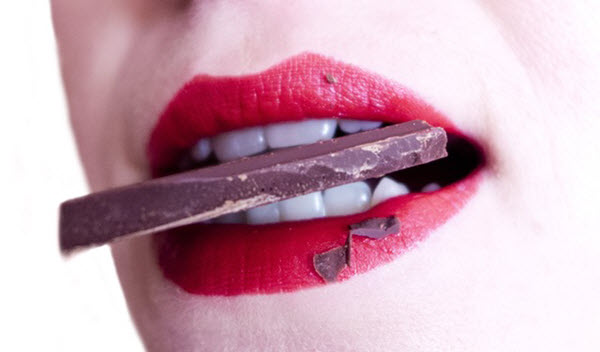The Real Deal With Health Myths And Facts
By ConsumerSafety
April 7, 2017 • Fact checked by Dumb Little Man

Growing up, you might have probably heard tons of health myths already. Avoiding the pool when you just ate lunch and sleeping while your hair is still wet are just some of them. These claims seem so real that even though there aren’t enough studies to back them up, we still continue to believe them.
To help set the record straight on the most popular health myths and facts, we’ve done the hard work of doing the research for you. Read on.
Being cold gives you a cold
False. While it’s true that more people get sick during the winter, it isn’t just because of the cold weather. Viruses, for example, spread more easily when the air is dry.
This happens for two reasons. For one, microorganisms from a sneeze or cough are slowed down by water droplets in the air. The longer they are suspended, the more they are likely to be inhaled by another person.
Another reason for frequent colds in the winter is how close people are to each other. When they are cold, people tend to stick closer to each other for warmth.
See Also: 6 Myths You Were Told About the Common Cold and Flu
Sugar makes kids hyper
False. This is an idea a lot of parents actually believe in. In reality, however, studies have found no evidence linking hyperactivity in kids to sugar consumption.
Kids may seem to act more boisterous while eating treats, but the reason is more closely linked with psychology than biology. Children consider sweets as rewards which make them excited.
Just imagine getting half a dozen kindergartners together for a birthday party complete with cake and ice cream, the fun meter will surely be off the chart. Parents can easily lose patience and would put all the blame in those sweet treats.
Toilet seats are covered in germs
False. This isn’t to say that eating your lunch on a toilet is perfectly fine. When it comes to bacterial buildup, the flushing handle, soap dispensers and door handles in your bathroom have probably more bad microorganisms than your toilet seat.
Most harmful bacteria quickly wither after making contact with dry bathroom’s surfaces. If you’re a toilet texter, try keeping your phone in your pocket until you’ve washed your hands.
Your cell phone can give you cancer
False. Speaking of cell phones, we’ve all read articles about how deadly they can be. The truth is, cell phones and microwave ovens do emit low energy or non-ionizing, electromagnetic radiation, but the levels are not high enough to be a health risk.
Currently, there is no known link between non-ionizing EMR and brain tumors. If there was, with nearly 4 billion people using mobile devices and Wi-Fi, we would have seen the number of brain tumor patients to have skyrocketed over the last 2 decades.
Cracking knuckles causes arthritis
False. The popularity of this statement makes it all the more surprising that it’s false. Fortunately, the gruesome noise isn’t actually made by bones snapping together or even arthritis. Theories suggest that it’s the popping of tiny bubbles trapped in fluids.
Some believe knuckle cracking may actually be good for people. So as long as it doesn’t hurt you, snap-crackle-pop away.
You should change your toothbrush after having a cold
False. Once you recover from a cold, your antibodies make it almost impossible to be infected again by the same rhinovirus. In that case, there’s no need to change your toothbrush or chapstick to stay healthy.
However, be sure not to share your toothbrush with anyone else. This is to prevent the spread of other infectious and communicable diseases that are far more serious than a cold.
Organic food is pesticide-free
False. The term “organic” is associated with pesticide-free foods that are as safe as those grown in your own backyard. This is far from the truth, though, because certain pesticides are still allowed in the farming of organic produce.
These so-called “organic pesticides” aren’t much safer than their synthetic counterparts as they’ve also been linked to serious health problems.
See Also: 7 Top Most Techniques Of Identifying Organic Foods
Eating chocolate gives you acne
False. This statement has sent shivers down the spines of many chocoholics for decades. It’s hard to even know where this myth came from, but it was most likely rooted in the dietary concerns of parents over their teens eating too much pizza and candy.
Acne actually occurs when our skin secretes too much sebum. It mixes with dirt and oils that can clog your pores. Chocolate lovers can rejoice over the busting of this myth.
Talcum powder increases ovarian cancer risk
True. Knowing the difference between health myths and facts can sometimes be confusing and intimidating, especially if they turn out to be true. Just look at tobacco and lung cancer.
Although more research needs to be done to determine the exact link between talc and ovarian cancer, there is already a strong correlation between the two. Until there’s a strong evidence that can prove otherwise, don’t put your health at risk and avoid using products with talc.
At one point, these were all real concerns that science eventually debunked. Many of them were born from our fear of death, disease and vulnerability.
Knowing that we can’t protect ourselves from everything makes us more susceptible to believing false statements. Before you actually believe in anything you read online or hear from your friends, make sure you do your homework first.
Being familiar with health myths and facts shouldn’t be that hard, especially with how advanced today’s technology is.
ConsumerSafety
We inform consumers about health alerts and recalls on products, drugs, food and medical devices, as well as publishing safety guides and news articles



